Trainings
Get notified of upcoming trainings
Oldest to Newest
Understanding Psychosis and Cognitive Behavioral Therapy for Psychosis (CBTp)
for professionals in psychology, behavioral health, and social work
Read Summary

Dr. Laura Tully
Dr. Tully’s two-part series on working with individuals with psychosis provides a review of the current status of evidence regarding the etiology, prognosis, and evidence-based treatment of psychosis, with a particular focus on working with individuals in the early stages of psychotic symptoms (e.g., high-risk and first episode populations) and using CBT for psychosis.
Maximizing Clinical Use of Telehealth
for professionals in psychology, behavioral health, and social work
Read Summary

Dr. Catherine Jones-Hazledine
Dr. Jones-Hazledine’s presentation is designed to help clinicians maximize their clinical effectiveness using telehealth. It will include a brief history of telehealth, discuss what research tells us about clinical efficacy with telehealth, cover common concerns and challenges, and introduce strategies and tools for making telehealth services most effective.
Cognitive Behavioral Therapy (CBT) for Substance Use Disorders
for professionals in psychology, behavioral health, social work, and NE licensed alcohol and drug counselors
Read Summary

Dr. John Herdman
Dr. Herdman’s presentation provides the foundation and application skills needed to effectively perform Cognitive Behavioral Therapy (CBT) with substance use disordered clients. It reviews the DSM-5 substance use disorder diagnostic criteria and helps counselors know the different types and applications of CBT that focus on cognitive restructuring, modifying behavior, and developing alternative coping skills.
Communication and Multidisciplinary Teams with Justice-Involved Populations
for professionals in psychology, behavioral health, social work, and criminal justice
Read Summary
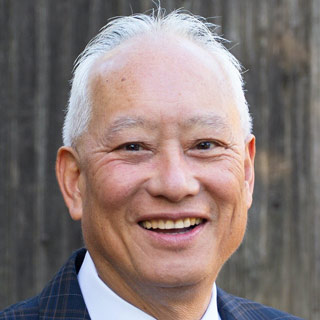
Dr. David Mee-Lee
Dr. Mee-Lee’s first presentation highlights how to communicate and integrate treatment and case information and how to function as a team. He focuses specifically on “How to Communicate and Integrate Treatment and Case Management Information when Working with Justice-Involved Populations.”
Recovery and Relapse in
Co-Occurring Disorders
for professionals in psychology, behavioral health, social work, and NE licensed alcohol and drug counselors
Read Summary



Dr. David Mee-Lee
Dr. Mee-Lee’s second presentation focuses on how recovery in both substance use disorders and mental illness is not always a smooth path. Psychiatrists and other mental health clinicians can often view recovery and relapse for psychiatric disorders differently from substance use disorders. He discusses what we really mean by recovery in substance use and mental health treatment.
Ethical and Risk Management Issues in Peer Support Services
for NE Certified Peer Support Specialists
Read Summary



Dr. Frederic Reamer
Professor Frederic Reamer discusses ethical issues and practical strategies designed to protect clients and practitioners. This training includes a series of challenging ethics cases and explores practical steps that professionals can take to manage ethical issues skillfully.
The Value and Use of Peer Support Within the Behavioral Health System
for professionals in psychology, behavioral health, social work, and NE licensed alcohol and drug counselors
Read Summary
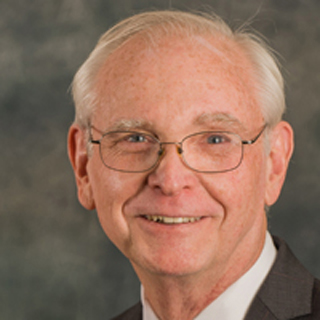

Patrick Hendry
Patrick Hendry’s workshop shows Nebraska behavioral health providers how to champion the introduction of peer support into new and existing services by addressing three key areas of importance: the value of peer support, the decision to implement and improve peer support services and how to prepare, and preparing to employ peer support staff.
Ethical and Risk Management Issues in Peer Support Services
for professionals in psychology, behavioral health, social work, and NE licensed alcohol and drug counselors
Read Summary



Dr. Frederic Reamer
Professor Frederic Reamer discusses unique administrative and supervisory challenges related to boundary issues and dual relationships (e.g., hiring former clients), conflicts of interest, confidentiality, privileged communication, informed consent, client’s rights, termination of services, practitioners’ and clients’ use of technology, and impaired professionals.
Introduction to Motivational Interviewing
for NE Certified Peer Support Specialists
Read Summary




Dr. Kate Speck
Dr. Kate Speck provides the basic information that makes MI an evidence-based practice and addresses the fundamental concepts of MI for peer support specialists, including the discussion of the atmosphere of change and critical conditions necessary for change to occur. Participants evaluate their personal attitudes related to change and select strategies that can be adapted to their practice.
Low Cognitive Disorders and Mental Illness
for professionals in psychology, behavioral health, social work, and criminal justice
Read Summary


Dr. Bill Reay
Dr. Bill Reay provides participants with case conceptualizations, information, and workable clinical applications associated with treating multi-comorbid individuals with both intellectual disabilities and serious mental illness.
Achieving Equity and Cultural Competencefor professionals in psychology, behavioral health, and social work
Read Summary


Dr. Vetta Sanders Thompson
Dr. Vetta Sanders Thompson gives the history and structure of the CLAS standards and discusses the relationship of the standards to existing health policy and statutes, as well as their implications for health equity.
Language Mattersfor professionals in psychology, behavioral health, social work, substance use, peer support, and criminal justice
Read Summary




Dr. Kate Speck
Dr. Kate Speck provides a review and refinement of the nature of language used now and offers an alternative way of thinking for providers. Healing the stigma of addiction for clients and professionals working in this field is important, and the language used to describe disorders and the behavioral outcomes are constantly changing.
Language Matters:
Lunch and Learn
for consumers, families, and the public
Read Summary




Dr. Kate Speck
Dr. Kate Speck provides a review and refinement of the nature of language used now and offers an alternative way of thinking for providers. Healing the stigma of addiction for clients and professionals working in this field is important, and the language used to describe disorders and the behavioral outcomes are constantly changing.
Trauma-Informed Care: Trauma 101
for NE Certified Peer Support Specialists
Read Summary






Stefanie Armstrong & Cathy Schweitzer
Stefanie Armstrong and Cathy Schweitzer’s presentation covers psychoeducation for Nebraska Certified Peer Support Specialists in the areas of the nervous system triggers, attunement, mindfulness, and provides an overview of polyvagal theory.
Trauma-Informed Care: Trauma 101
for professionals in psychology, behavioral health, and social work
Read Summary






Stefanie Armstrong & Cathy Schweitzer
Stefanie Armstrong and Cathy Schweitzer’s presentation covers psychoeducation for licensed behavioral health professionals in the areas of the nervous system triggers, attunement, mindfulness, and provides an overview of polyvagal theory.
Working with Mental Health and Criminogenic Factors in Justice‑Involved Populations
for professionals in psychology, behavioral health, social work, criminal justice, and substance use
Read Summary


Dr. Mark Lukin
Dr. Mark Lukin provides an integrated approach to dealing with consumers with mental health with an emphasis on personality disorders and substance use disorders who are involved in the criminal justice system. In addition, Dr. Lukin discusses the integration of mental health and criminal justice approaches, and balancing individual and community rights.
Peer Support Documentation: Best Practices & Strategies for a Growing Workforce
for NE Certified Peer Support Specialists
Read Summary



Millie Sweeney
Documentation is not an inherent skill–it must be learned and practiced. Millie Sweeney’s workshop identifies best practices in documenting your work in progress notes and developing goals for support planning, as well as what you should be documenting regarding supervision and professional development.
Peer Support Documentation: Best Practices & Strategies for Supporting a Growing Workforce
for Peer Support Supervisors
Read Summary



Millie Sweeney
Supportive supervision is critical for the success of peer support providers. Effective documentation is a skill that must be learned and practiced. In this workshop, you will be able to identify essential components for peer support work documentation and supervision. Learn best practices for supervisors in supporting this important skill and strategies for encouraging timely and quality documentation consistently.
Resilience Workshop
for NE Certified Peer Support Specialists, Mental Health Technicians, and Community Support Workers
Read Summary


Nicole Weis and Bradley Mallett
This workshop will provide critical education and skills for peer support and other direct care workers to reduce burnout and traumatic stress (both primary and secondary), maintain wellbeing, and build mental health resilience.
Introduction to Sex Offender Assessment and Treatment for Adults and Youth
for professionals in psychology, behavioral health, social work, and criminal justice
Read Summary


Dr. April Young
Dr. April Young provides a general overview of the treatment and assessment of both juvenile and adult sex offenders. Learn the definition of sexual offender from a legal and clinical perspective, the role of the therapist in the field of sexual offending, the sexual offender subtypes and typologies, and even more.
Older Adult Behavioral Health 101
for professionals in psychology, behavioral health, and social work
Read Summary


Dr. Erin Emery-Tiburcio
Due to medical, public health, and social efforts, more and more Americans are living longer. Dr. Erin Emery-Tiburcio provides knowledge that every mental health clinician needs to work effectively with older adults.
Multiple Pathways of Recovery & Building Equity
for professionals in psychology, behavioral health, social work, and substance use
Read Summary
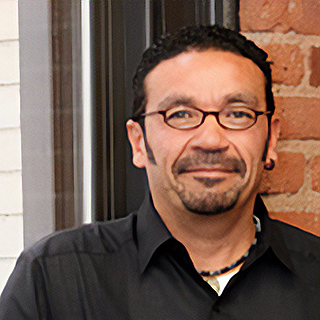

Dr. Haner Hernández
This workshop explores the development of disparities related to substance use disorders and mental health in the United States and their impacts on marginalized communities.
Adolescents & Substance Use: Using Our Knowledge and Their Strengths to Find Recovery
for professionals in psychology, behavioral health, social work, and Nebraska licensed alcohol and drug counselors
Read Summary


Drs. Kenneth Zoucha, Varun Sharma, and Tianqi Luo, and Laura Schutte-Lundy
In this training, the four speakers will address epidemiology, neurobiology, effective screening and assessment, co-occuring psychiatric disorders, language and stigma with substance use, and evidence-based treatment.
Cultural and Linguistic Responsiveness: A Strategy to Achieve Health Equity
for professionals in psychology, behavioral health, and social work
Read Summary
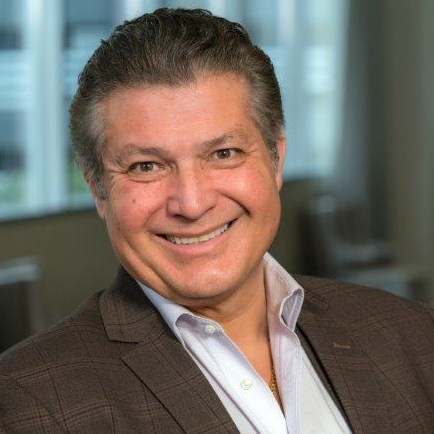

Dr. Pierluigi Mancini
This workshop examines cultural factors that can affect health and healthcare, such as language, communication styles, beliefs, attitudes and behaviors. And how providers can reduce disparities through CLR and unbiased quality care including steps addressing governance, organizational policies and services.
Legal & Pharmacologic Considerations for the Management of Substance Use Disorders
for professionals in psychology, behavioral health, social work, and substance use
Read Summary


Dr. Nathan Sutera & Dr. Ally Dering-Anderson
This presentation discusses the management of substance use disorders (SUDs). Part 1 focuses on the legal considerations regarding relevant rules and regulations and Part 2 focuses on currently available evidence-based pharmacologic treatment options.
Measurement Based Care: What it is, Why it Matters, and How to Put it into Practice
for professionals in psychology, behavioral health, and social work
Read Summary


Adam Graham & Josh Hagedorn
This training introduces and unpacks measurement-based care (MBC) at the clinician, team, and agency model, with a direct line drawn to why it is worth the time and intention to implement this approach.
Navigating Ethics and Boundaries as Peer Professionals
for Certified Peer Support Specialists
Read Summary


Tim Saubers
In this training, participants learn about ethics and boundaries in behavioral healthcare through the lens of peer recovery support specialists. Participants revisit and define universal peer values, explore how individual morals impact decisions in ethical situations, and look at a tool that provides a framework for decision-making.
Integrated Dual Disorder Treatment: An Overview
for professionals in psychology, behavioral health, social work, and substance use
Read Summary


Jenny Row
This presentation introduces the Integrated Dual Disorder Treatment (IDDT) model. This evidence-based practice improves the quality of life for people with co-occurring disorders by combining substance use services with mental health services.
Developing Clinical Expertise in Violence and Risk Assessment
for Nebraska licensed clinicians
Read Summary


Dr. Mario Scalora
This workshop will enhance and promote statewide clinical expertise in violence risk and threat assessment in Nebraska and includes a special topic on serious mental illnesses and the legal system.
State & National Landscape on the Value and Use of Peer Support Services
for Nebraska Certified Peer Support Specialists and Behavioral Health Providers
Read Summary


Amy Brinkley
This presentation is an insightful session on Nebraska state peer certification and the national peer landscape. Discover best practices for implementing peer support services and gain up-to-date guidance from state and national sources.
Serving Youth and Families in Crisis
for professionals in psychology, behavioral health, and social work
Read Summary


Dr. Cate Jones-Hazledine
This presentation is designed to inform and educate professionals of various disciplines to make them more comfortable working with youth in crisis across settings.
The Adolescent Brain, Behaviors, & Substance Use
for professionals in psychology, behavioral health, and social work
Read Summary


Dr. Alexander Wallace
This presentation offers information on the adolescent development including changes in behavior and how these changes are related with brain development as well as the relationships between substance use and behaviors common in adolescents.
Peer Support Specialist Values, Ethics, & Boundaries
for Nebraska Certified Peer Support Specialists (CPSS), CPSS supervisors, professionals in psychology, behavioral health, and social work
Read Summary
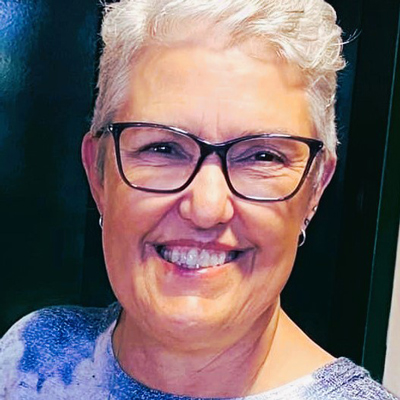

Lisa Goodale
This presentation discusses Peer Support Specialist values and ethics based on the Nebraska Peer Support Specialist Code of Ethics and their relationship to values and ethics of licensed behavioral health clinicians.
Peer Support & De-escalation
for Nebraska Certified Peer Support Specialists and criminal justice
Read Summary


Chad Magdanz
In this training, Peer Support Specialists learn de-escalation strategies. The training emphasizes the importance of being intentional with verbal and nonverbal communication, mindful of the purpose of the conversation, calm, and empathetic, as well as the importance of offering options.
Cultural Competency
for professionals in psychology, behavioral health, and social work
Read Summary


Dr. Nyabang Byom
This training focuses on increasing the cultural competence of behavioral health professionals to improve the quality of care provided to clients from culturally diverse backgrounds.
Person‑Centered & Trauma‑Informed Crisis Management & De‑Escalation
for Nebraska Certified Peer Support Specialists (CPSS), professionals in psychology, behavioral health, and social work
Read Summary
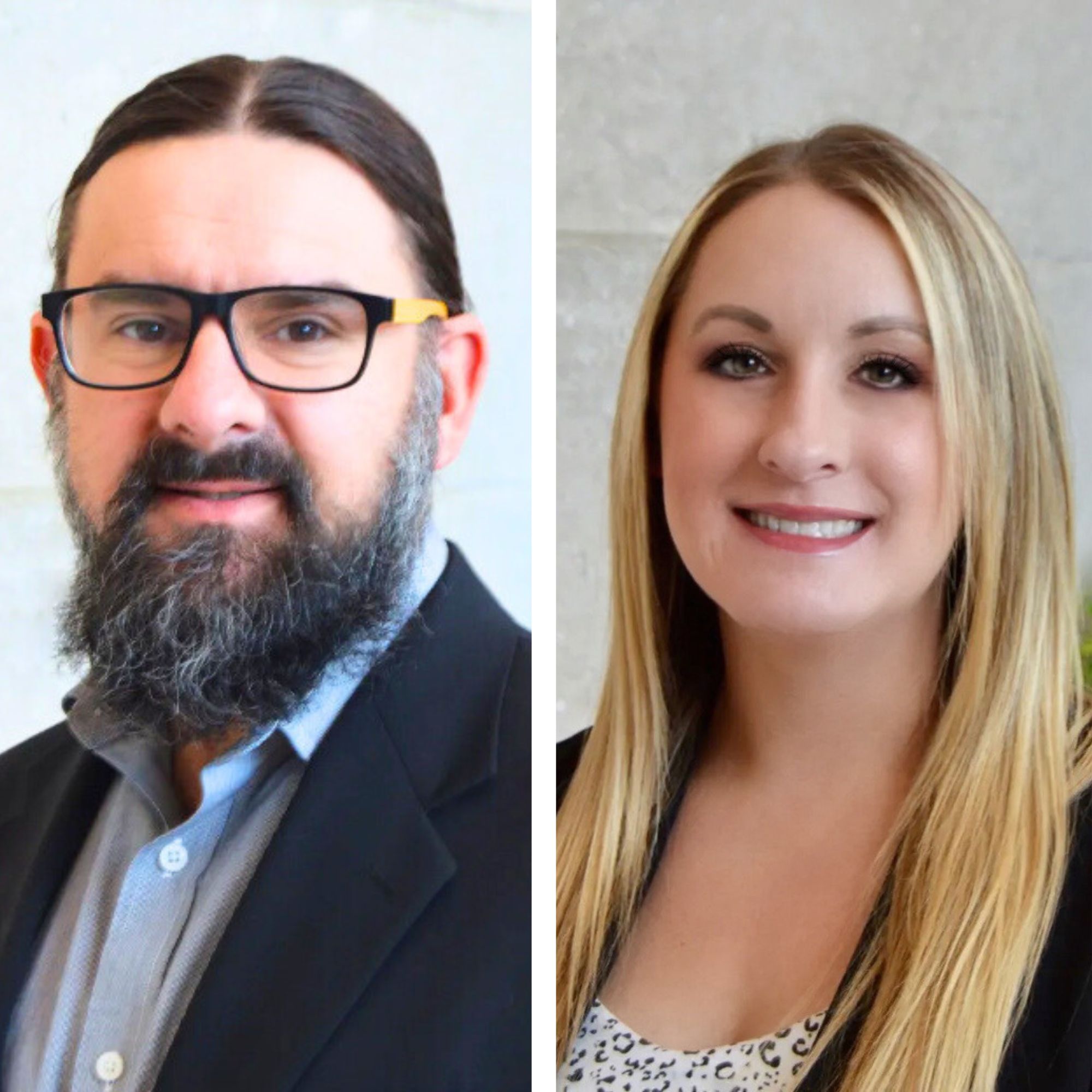

Dr. Ryan Carruthers & Amber Dirks
This training equips participants with vital skills to ensure safety and wellbeing in distressing situations. Participants learn to identify and assess the various components of a crisis, apply person-centered and trauma-informed principles in their de-escalation efforts, and more.
Opioids & Substance Use: How it Affects the Lives of Our Patients
for professionals in psychology, behavioral health, and social work
Read Summary


Drs. Kenneth Zoucha, Sara Zachman, and Claudia Moore
This training discusses the neurological components and evidence-based treatments related to opioids and substance use. Additionally, the training also discusses pregnancy and co-occurring disorders with substance use.
Tribal Standards of Care
for professionals in psychology, behavioral health, and social work
Read Summary


Grace Johnson & Elizabeth Lovejoy Brown
This training focuses on Tribal Standards of Care: History, Culture, & Healing when Working with Native, Indigenous, & Tribal Populations.
Coordinated Specialty Care for First Episode Psychosis
for professionals in psychology, behavioral health, and social work
Read Summary


Drs. Melissa O’Dell, Riley Machal, & Sarah Fischer
This training reviews the components of a complete biopsychosocial evaluation for a person experiencing psychotic symptoms, including how to evaluate for differential diagnoses.
Ethical Approaches to Providing Competent Behavioral Health Care
for professionals in behavioral health, psychology, drug & alcohol counselors, and social work
Read Summary


Dr. Mark Lukin
The training session covers ethical principles, discusses their application, gives examples of common ethical dilemmas, describes an ethical decision-making model, and discusses cultural considerations when making ethical decisions.
Trauma-Informed Care: Evidence-Based Applications
for professionals in behavioral health, psychologists, counselors, social workers, & peer support specialists
Read Summary


Dr. Hanna Grandgenett
This training is designed for mental health professionals and peer support specialists to enhance their understanding and application of trauma-informed care.
Understanding & Managing Bias in Expert Forensic Judgment
for professionals in psychology, behavioral health, counselors, social work, & criminal justice
Read Summary


Dr. Tess Neal
This training explains the basic science of how and why human judgments are susceptible to various biases, with specific emphasis on expert judgments in forensic settings.
Risky Substance Use Among People with Intellectual, Developmental & Other Cognitive Disabilities
for professionals in behavioral health, psychologists, counselors, social workers, & peer support specialists
Read Summary


Drs. Sharon Reif, Rachel Sayko Adams, & Joanne Nicholson
This training discusses the substance use, prevention, treatment, and peer support among people with intellectual, developmental, & other cognitive disabilities such as traumatic brain injury.
Making Ethical Decisions for Peer Support Specialists
for professionals in peer support
Read Summary


Jean Dukarski & Deborah Monroe
The training session outlines a framework for ethical and professional boundaries, peer drift, and ethical decision-making in peer support.
Motivational Interviewing: A Focus on Evocation Techniques to Elicit & Strengthen Change Talk
for professionals in behavioral health, psychologists, counselors, social workers, and drug & alcohol counselors
Read Summary


Brenda Jennings
With this training, learn the history and broad application and pairing of motivational interviewing (MI) as an evidence-based practice and gain a better understanding of the use of ten Evoking Change Talk Techniques to strengthen client commitments to change.
Enhancing Peer Support Through Crisis Management and Collaboration
for professionals in peer support
Read Summary


Brad Negrete, Eve Jarboe, & Jamie Rich
This presentation includes two sections: the first section focuses on crisis management for peer support specialists and the second section focuses on collaboration and teamwork.
Diagnosis: What It Is, What It Isn’t, and What It Can Be
for professionals in behavioral health and psychology
Read Summary


Kenneth Kinter
During this training, learn about the various functions of diagnosis and how they can both conflict and aid each other.
Empirically-Supported Treatments for ADHD in Children: Helping Parents, Kids, and Teachers Do Their Best
for professionals in behavioral health and psychology
Read Summary


Dr. Margaret Sibley
This presentation reviews best practices and professional practice guidelines for the screening and diagnosis of ADHD in childhood and adolescence. This training covers variations in practices by clinical setting, age, gender, and presentation. An overview of treatment best practices is provided separately for the childhood and adolescent contexts.
Best Practices in Screening & Diagnosis of ADHD in Adults
for professionals in behavioral health and psychologists
Read Summary


Dr. Margaret Sibley
This presentation reviews empirically supported best practices for the screening and diagnosis of Attention Deficit Hyperactivity Disorder (ADHD) in adults. The content covers core assessment components, best practices, and practices that may lead to misdiagnosis.
Advancing Neuropsychiatric Care: Connecting Brain Injury Treatment to Better Outcomes
for professionals in behavioral health and psychology
Read Summary


Kenneth Kinter
This seminar series focuses on the following topics: recognizing behavioral, emotional, and cognitive symptoms in patients with brain injury; prescribing medications for brain injury-related symptoms; providing supportive psychotherapy and cognitive-behavioral therapy; educating and supporting families of patients with brain injury.
Ethics: Managing Personal and Organizational Ethical Challenges
for psychologists, behavioral health and licensed mental health professionals
Read Summary


Dr. Mark Lukin
This program reviews several clinical cases with a focus on increasing skills in managing potential ethical challenges, both internal and external.
Learn about future trainings
Additional training opportunities will be made available to clinicians and other professionals who are interested in further developing their skills in areas of behavioral health. Subscribe to be notified of future trainings.
These trainings were funded in whole or in part by funds from the SAMHSA Community Mental Health Block Grant, SAMHSA Substance Abuse Prevention and Treatment Block Grant and state funds sub-granted from the Nebraska Department of Health and Services, Division of Behavioral Health.


